A most anticipated Kona debut
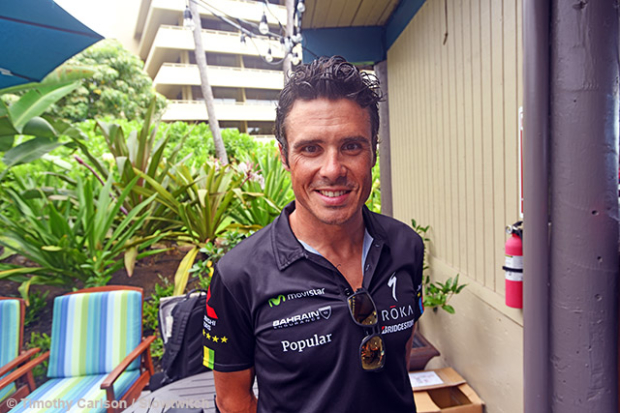
With Jan Frodeno out with a sacral fracture, Patrick Lange, Lionel Sanders, Sebastian Kienle, David McNamee, Tim O’Donnell have Kona experience and Ironman podium capability. But Javier Gomez is the most anticipated Kona debut ever.
Gomez has an Olympic silver, 5 ITU World Titles, two Ironman 70.3 World Championships, and one XTERRA Worlds. At age 35, he is ripe for a Kona debut and has done his homework – but he has fallen just short of pre-Kona domination. At Ironman Cairns, he broke 8 hours and got his Kona slot. But he finished second to Braden Currie by 1:41 and Currie outran Gomez 2:40:00 to 2:41:03. In the big shootout at Ironman 70.3 Worlds, Gomez fell prey to a late run side stitch and was outrun by Frodeno and Alistair Brownlee down the stretch and had to settle for the final spot on the podium.
Nominated by many as the best all-round triathlete ever, Gomez has question marks and an aura of mystery for his Kona debut.
Slowtwitch: Was the Big Battle in South Africa between Olympic medalists, Ironman and Ironman 70.3 Worlds Champions the race of the year? Possibly overshadowing Kona?
Javier Gomez: That was a big battle for sure. It might be big battle here as well. I don‘t know who the ultimate contenders are going to be. But yeah South Africa was a great race. Unfortunately I had a pretty bad side stitch on the run. I just had to walk for a bit and I couldn’t really push myself the rest of the run. Which was a shame.
ST: You did not mix it up with Frodeno and Brownlee on the bike in South Africa.
Javier: I was very happy with my bike. I didn’t expect to be at the front with Alistair and those guys because I was very confident in my run. Then I had the stitch and I was very disappointed. But that’s racing.
ST: Still, you ran 1:08?
Javier: Yeah I think the run was shorter than standard. No way I run 1:08 walking. And Jan, I don’t think he runs a 1:06.
ST: Maybe 1:08?
Javier: Yeah probably. Sure.
ST: Some people say you will have a hard time on the bike in this race. I know you have great capacity. But Cameron Wurf, Andrew Starykowicz, Sebastian Kienle, may take a significant lead. Some suggest you should hang close to Patrick Lange, a good but not great cyclist then run with him through the field and call upon your Olympic distance speed.
Javier: Definitely I don’t expect to be as good as Sanders on the bike. Or Cameron Wurf. I want to have a consistent bike – to be able to run a good marathon. No matter how you do it, in these conditions – hotter, windier, more humid than Cairns – it is really hard whether you are a good runner or not.
ST: Are you a good hot weather runner?
Javier: I think I’ve improved in my Ironman training since Cairns. My big experience is in ITU races where I have performed well in the heat. But this is an eight hour race. So it is hard to predict. I hope I can do it well. But we will see.
ST: Some people say it will be impossible to make up for your deficit after the bike? What do you hope for?
Javier: Well I will try to be smart and know I have a marathon to run after the bike. But at the same time, I don’t want to lose too much time. It is finding that balance between staying in the mix, in the race, but try not to burn all your matches on the bike. First you have to see how the others go. And you have to make a lot of decisions
ST: Braden Currie had a better race than you did at Cairns. But did you also have some stop and go problems?
Javier: No Braden was amazing. He surprised me. I am very happy with my first Ironman and going under 8 hours. But to be honest we ran the first 20k together at 3:30 to 3:32 per kilometer pace. I thought we were going to blow up for sure. I thought he would be the one to blow up first. But it was the other way around.
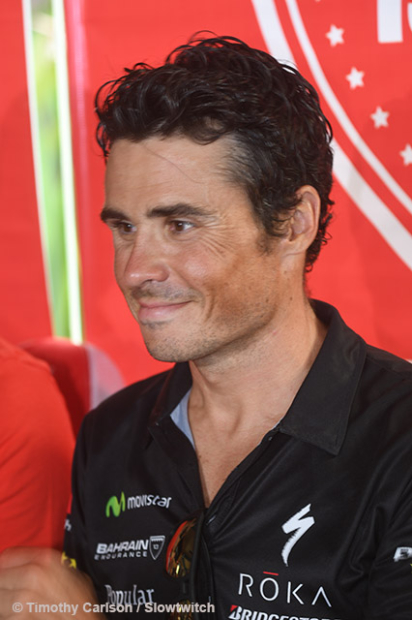
ST: How did you maintain to the finish after you blew up?
Javier: We both slowed down the last 10k. But I had some muscle problems. My quads were really sore. I just couldn’t hold the pace. I had to slow down.
ST: What did your coach Carlos Prieto say to you after that race? And going into Kona?
Javier: That was my first Ironman. I have done much more work now. It is really hard to adapt to an Ironman in the first few months. And try to be a world champion. In Cairns I ran 2:41. In my mind it was a horrible marathon. The last 10k I was really, really slow. I remember I went 1:15 in the half marathon. Then obviously I couldn’t hold it. I had a good nutrition. The fueling went well. But my muscles had no more power.
ST: You can’t improve on your nutrition here?
Javier: Obviously the conditions are very different. Cairns was a nice day. It wasn’t too hot. Here it is so hot and humid. Obviously you need to drink way more.
ST: What did you learn from Cairns and South Africa?
Javier: In Cairns I learned a lot about the distance. It was my first time. And I learned that the bike is never steady. You try to hold certain watts. Then you have to race. Some moments are intense. Some are slow. You have to read the race really well and leave something for the marathon. I learned it is a very long run. And I wasn’t ready yet.
ST: It is not a steady state paced run?
Javier: I was not fully prepared. My longest run at that moment was about two hours. I was overwhelmed and from that moment on I struggled.
ST: How did you prepare for the marathon this time?
Javier: You cannot go from Olympic distance to Ironman and suddenly start doing many long runs. You will get injured. You must do it gradually. And hopefully it works. Also, I ran several 42 kilometer long runs.
ST: How much are you anticipating coming to this fabled venue with all its history and legends?
Javier: It’s a very special place. That I respect a lot. Great champions have come here and all of them have met challenges.
ST: Mark Allen above all. Allen did not hit it right until his seventh year chasing Dave Scott.
Javier: That means it is a race you need to get to know and understand. It is a hard race to get familiar with. And you will make a few mistakes and learn from them. I hope I do not make too many. I hope I can be in the mix and have the best race I can.
ST: You are approaching this with humility. But do you believe you can win it this year?
Javier: Well yeah I do believe it. Of course. Otherwise I wouldn’t be here. But I am realistic as well. There are people with more chances than me to win. Of course I Iearned this a long time ago in Olympic distance. The first thing you must do is believe in yourself before you can win. Otherwise it’s not gonna happen.
If I think ‘Aw I can get 5th?’ For sure I’m not gonna win. You have to keep that in your mind. You must race for the win.
ST: In your racing the 70.3s, which one gave you the most proof you can win here?
Javier: In 70.3 I have done many good races. Last year I won the World Championships in Chattanooga. And many others. It a is a distance I feel very comfortable with. And I went sub 8 hours in Cairns. I believe I can go better than that. Obviously conditions here are different than Cairns.
ST: In your first Ironman, you faded at the end of the run. It must have been painful – physically and emotionally. Can you actually enjoy racing this distance?
Javier: You enjoy the experience at first because you don’t suffer so much at the beginning. Otherwise you won’t make it. But then thing get tough. Especially in the last 12-13k. It is a real battle against your mind, your body, it gets really hard. You want to stop. Olympic distance you don’t enjoy it so much. You go so hard from the beginning.
ST: There are some places I call trigger points on the bike course. Places where surges are made and breakaways happen. Some say the beginning of the climb to Hawi. Some say it’s at the turnaround when you begin to charge the downhill. Some say at 85 miles you enter a stretch where the conditions are very unpredictable. Wind in your face, to the side, behind you.
Javier: I have been training on the course. The wind changes so much. You have a turn and suddenly you feel the tailwind. Suddenly you feel the heat. The part around Hawi turnaround is quite complicated. But all I did was in training. Race conditions always are different. So I think I will learn how it feels.



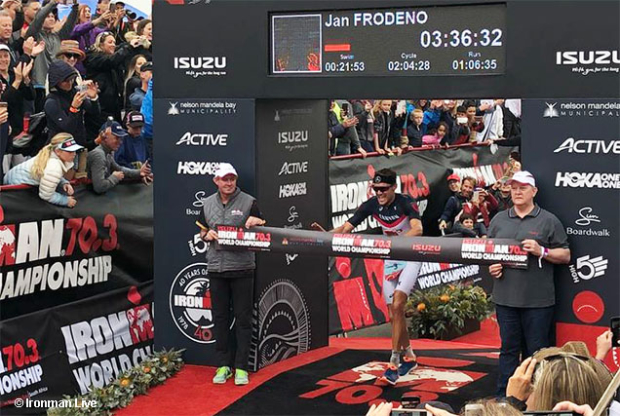
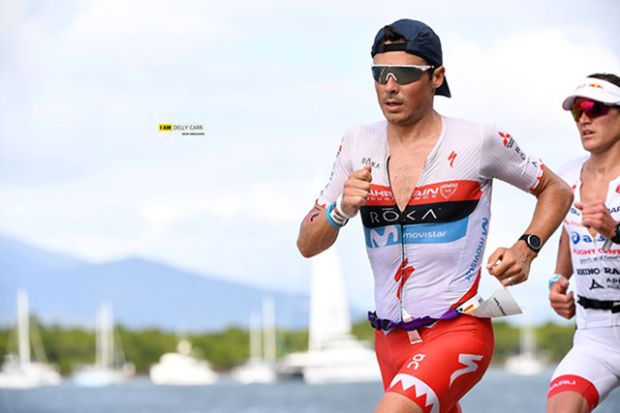
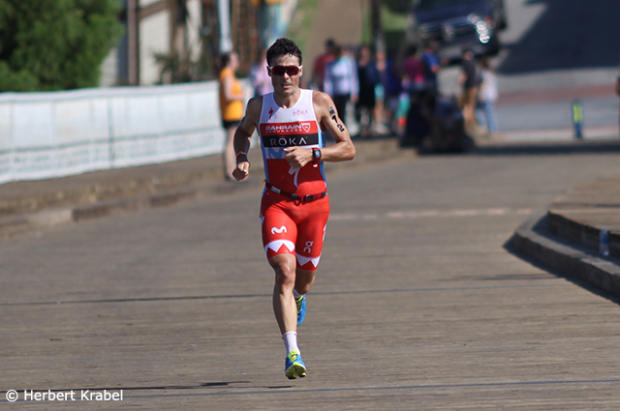

Start the discussion at forum.slowtwitch.com